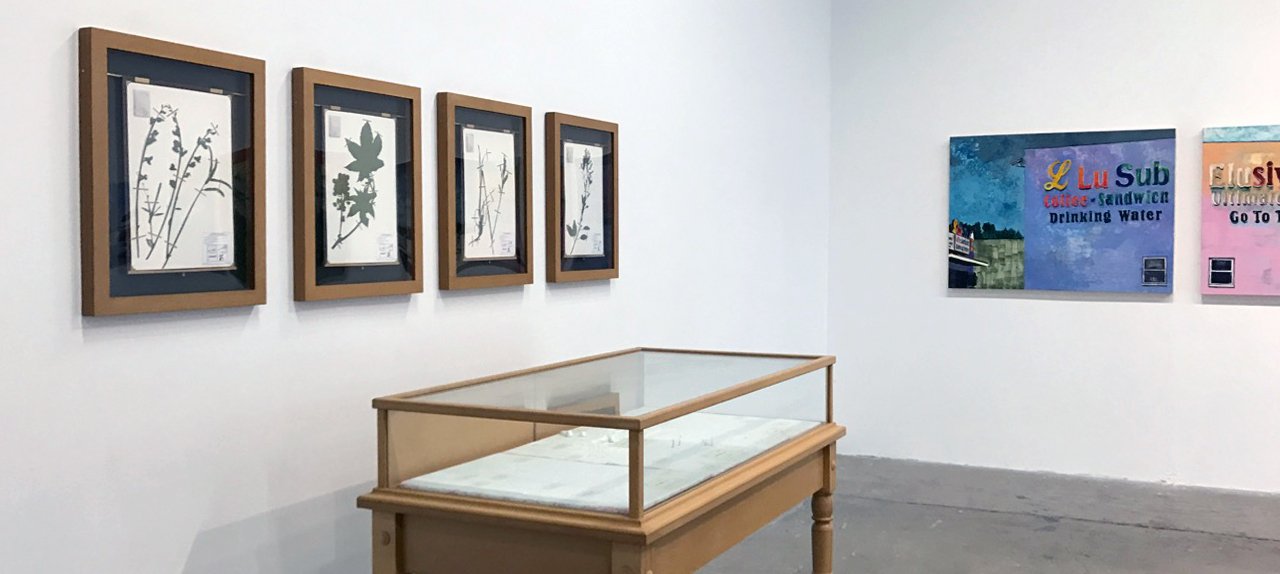Installation view Ex Libris, January 30, 2017 – March 5, 2017, Chapman University’s Guggenheim Gallery, Orange, CA
Ex Libris
Katy Herzog with Andrew Choate, Gala Porras-Kim, Candice Lin, Mona Varichon, Jenny Yurshansky
January 30, 2017 – March 5, 2017
Chapman University’s Guggenheim Gallery, Orange, CA
With the onset of the mass mediated era, a century plus ago, our collections of images and data began to grow exponentially, and so did the curiosity about these alternate realities that would eventually fill the vaults and books. The collage, quickly invented by the cubists, was an early artistic response to this situation, an outlet to deal with the plethora of printed images and texts that could now be found increasingly in magazines and on the cities’ billboards. The collage however was deeply rooted in rather classical painterly questions of pictorial composition and soon the abundant influx of daily fresh material fostered a more objective, removed view of the meaning of these images and text snippets - it became apparent that one way of perceiving this complex of information, its actual content, was inherent in the conditions of its production.
Minimalism and Pop Art deepened the examination of mass-produced base-material, and their experiments with serial and modular arrangements further eroded concerns of composition. Finally by the late 60’s, Conceptual Art formulated the archive as an artistic possibility: A compilation of images, objects or texts that was not first and foremost an aesthetic experience, but a gathering of historical records compiled of modules of information, which could be rearranged or replaced - A democratic endeavor of sorts.
Today grids and lists, once considered subversive and un-artistic forms of representation are not only found in every museum with a modern wing, they are also the reality of our digital lives. The archive in its many forms has become part of the repertoire of contemporary art and the term "research" has long defected from the sciences. But precisely in undergoing this evolution archives emerge as providers of meta motifs. Working with them allows to address abstract social, economical and political processes that are invisible, but which information helps us to see.
The artists in EX LIBRIS- Approaches to a Research Based Practice present their findings in a variety of media, employing video, photography, collage, poetry, sculpture and painting. Grids and lists are still in the mix, but they are part of an undogmatic choreography of styles that embraces a multiplicity of historic influences and their aesthetic (re-) discovery.
